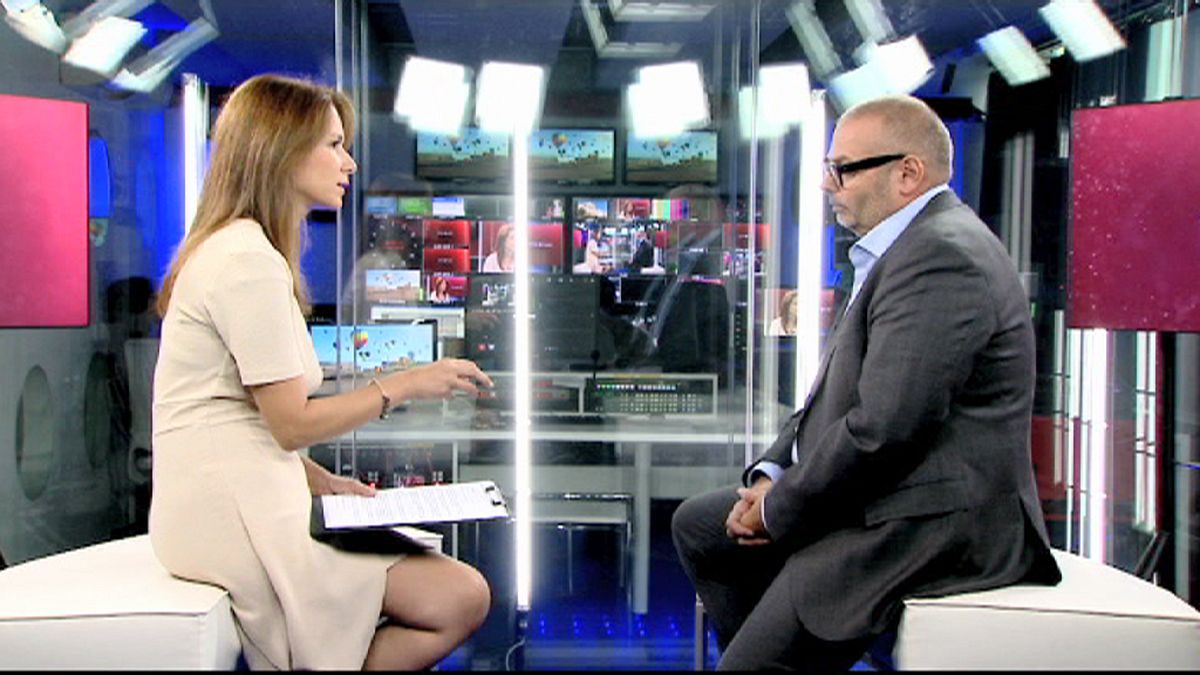Efi Koutsokosta, euronews: First of all I would like to ask you about these pictures that everybody has seen today between Hungary and Serbia, the
Efi Koutsokosta, euronews: First of all I would like to ask you about these pictures that everybody has seen today between Hungary and Serbia, the borders between Hungary and Serbia So, where is the EU? Did it lose control?
Janis Emmanouilidis, European Policy Centre: The pictures we have seen are horrible pictures which we would not believe we could see them within the EU or the direct neighbourhood of the EU. We probably need to make ourselves aware of the fact that the people will continue to be coming. Whatever fences you build, however high you might build it the people are desperate and they’re leaving their countries because they are seeking a better future for their kids. Which means that this is something which will not stop.
euronews: Last week the EU Interior Ministers have failed to agree on this quota plan proposed by the EU Commission. And now we have a new meeting. What do you expect from that now that they say that probably they may push to have an agreement by a qualified majority?
Janis Emmanouilidis; This is a crisis which is adding to other crises like the euro crisis, like the crisis in relationship with Ukraine and Russia. So, adding crises on each other which are in some ways interlinked, they are combined up it’s not making it easier. So, in political terms this is bad news for EU in general.
Euronews:
We’ve seen that Germany of course has received a lot of refugees and it’s going to receive almost 1 million people by the end of the year. But still now, it has closed the borders.
Janis Emmanouilidis:
The Chancellor Merkel took a decision to opoen the borders to receive refugees but at the same time there is also pressure, internal pressure, internal domestic pressure, the sister party of Chancellor Merkel’s CDU party is putting pressure on her from Munich. At the same time, by closing the borders, at least temporarily, it’s also putting pressure on other member states to forge a compromise at the European level. So, there are a number of reasons why they are doing it.
Euronews:
Yes, but by closing the borders has created many tensions between member states or countries in Europe. It’s escalating the situation.
Janis Emmanouilidis:
Yes, but sometimes unfortunately at the European level we have escalation before we forge a compromise. The key thing is that quickly, maybe the Summit next week will be the moment and time to find a compromise and the root causes of this problem won’t be solved by a decision of next week and the fact that more people will come and by relocating 160.000, you haven’t solved that challenge. So, much more have to be done in the future and difficult things. and I am not sure that the EU will be able to cope with these things.
